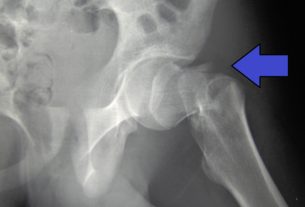Dyslovia
Many assume that all people have the same capacity to love. This is not true. Whether due to personality disorders, such as narcissism or anti-social personality disorder, or traumas that made them distrust people, many individuals avoid emotional intimacy. They may view relationships only in terms of services they can provide, such as money, power, status, or physical intimacy. We might view them as suffering from dyslovia. Just as dyslexics reverse letters, dyslovics reverse the normal ways by which loving bonds are formed. Instead of trust, respect, and empathy, there is deceit, disrespect, or disinterest. Efforts to connect to such a person is like driving into a concrete wall, over and over again. It’s hard to face the brutal truth: “The one who wants the relationship least is the one who controls it.”Nurturers find it impossible to grasp this reality. They insist, “It can’t be that they don’t care! I will continue to forgive, overlook, shut up and put up because there must be a nugget of love there somewhere. I’m sure they’ll appreciate me one day if I just persist in my efforts to get to that nugget, no matter how inconsiderate, critical, or disconnected they are.”
Mind-blind
Non-nurturing people can display a wide range of behaviors, from mild oblivion to icy detachment and explosive rage. Even if they have no conscious or malicious intent to do harm, the pain is profound. Yet, it is useless to ask, “Don’t you realize how hurt I felt when you made that derogatory remark about my___ (weight, looks, cooking, parenting skills, IQ, etc.) or compared me to someone who you think is richer, more attractive or has a more prestigious job? Don’t you care how bad I feel when you call me stupid, ugly, selfish, crazy, disgusting, or incompetent?” It’s like asking a reckless driver, “Don’t you care that you drive like a maniac and endanger others?” Actually, they don’t care. Caring people can’t grasp this reality.
Recognize the signs
The NNS is often self-absorbed and self-centered, seeking nothing more than a shallow, functional relationship which provides practical services. They are proud of being “strong,” which they define as lacking emotion. A seminary girl told me that she was visiting her aunt when a call came from America informing her that her father, this aunt’s brother, had died of a sudden heart attack. When she burst into tears, her aunt scolded her sharply, “He’s gone. It won’t help to cry. We must focus on arrangements.” I can bet that this aunt’s husband is a sweet, nurturing type who will do anything to please her and blames himself for not succeeding. He won’t accept that she is not “pleasable” and that requests for respect and gratitude are useless.
Soul-crushing
It’s useless to share feelings because doing so is a waste of time to them. Thus, it is not possible to process painful events. They show no remorse or shame about what they’ve done. Nurturers will cry, “I’ve lost my identity, my motivation, and even my desire to live. I feel like a burden. I don’t matter. I’m just here to be an ATM machine or a servant. I am alone, without meaning, value or purpose. I pray for death, as that is the only honorable way out of this marriage.” Despite the pain, most stay married mainly to protect the children and their social status and because they fear being alone, impoverished, ostracized by the community or extended family or having to face custody horrors. Nurturers suffer, usually in silence, ashamed of their inability to create a close and loving connection, not realizing that this is impossible.
Fixer fantasies
Those raised by non-nurturing parents (NNPs) are even more likely to blame themselves. This is a pattern formed in childhood, when they blamed themselves for failing to get love from their parents. So, now, they persist in thinking, “The very people who broke me are the ones who must heal me. I can’t heal until the people who made me feel worthless make me feel worthy.” Nurturers spend years trying to fix, educate, and heal the NNS, a role which is promoted by many therapists, who tell them, “Yes! You can do it! Ignore the criticism; it’s just words. Just try harder. Have more date nights. Be more respectful, submissive, and forgiving. Be a great cheerleader! Build them up to bring out the best in them. If you try hard enough to please them and get enough therapy, you’ll eventually get the love you crave. Come to my clinic, where we turn sharks into dolphins – for a fee!”
Hope dope
Nurturers often seek therapy, hoping for some magic key that will get their spouse to connect and care. Many advisers offer glib advice that discounts, trivializes, and minimizes their pain. They are trained to push what I call “hope dope.” That is, “Never give up hope! Everyone can change. Focus on the good. Every marriage can be great and provide you with the love you deserve. We’ll teach you to fall madly in love with each other.” However, it’s not the NNS who invests endless years in therapy, takes expensive workshops or buys books that promise to get a cold, dismissive, disconnected or explosive spouse to become loving and communicative. And it’s the nurturers who feel ashamed when the longed-for changes don’t appear. Even after forty or fifty years, they are still waiting for a compliment or a word of appreciation, thinking, “I’m a failure because my dreams did not materialize, despite all my prayers, pleas, forgiveness, and self-sacrifice – and my hopeful vision board.”
Insanity or trauma?
A spouse who feels unloved and unappreciated will inevitably suffer from physical and emotional illness. In contrast to PTSD, which can result from a one-time trauma, such as an accident, death, or injury, C-PTSD (complex post-traumatic stress disorder) refers to prolonged, inescapable abuse or neglect, along with a sense of helplessness and loss of self-worth. C-PTSD symptoms are so similar to symptoms of mental illness that even the best experts miss the underlying trauma which has caused damage to the nervous system and immune system. The most common symptoms are: Physical pain: Auto-immune illnesses, such as chronic fatigue, arthritis, digestive disorders (IBS, Crohn’s and colitis), thyroid disorders, fibromyalgia, dysautonomia, even some cancers, as well as stress-related illnesses and injuries, chronic back/neck pain, and cardio-vascular damage.
Emotional pain
Stress raises the cortisol level, which eats up the serotonin, the calming hormone, which is the main ingredient in SSRI medications, leading to emotional dysregulation, depression, anxiety, agitation, panic attacks, nightmares, suicidal ideation, derealization, dissociation, depersonalization, social isolation, mood and eating disorders, insomnia, self-harming behaviors, an exaggerated startle response, noise sensitivity, intense feelings of shame, low self-esteem, feeling overwhelmed, frazzled, and always “on edge.”
Mental distortions
Sufferers express beliefs such as “I can never be good enough. I’m fundamentally defective and unlovable. No one can ever care about me. I feel isolated and alone and don’t feel I belong anywhere. I don’t know who I am or what I want. I’ve lost the ability to experience joy and love.” Addictions are common, as they seek to soothe their pain with a substance or activity that provides relief, such as food, drugs, or alcohol.
Context counts
People don’t go to psychiatrists complaining of “emotional starvation.” Instead, they report, “I’m having panic attacks” or “I’m depressed. I need medication to help me tolerate the pain.” Doctors quickly prescribe psych meds, which then confirms the victims’ belief that “I really am to blame. I am insane.”
Survival skills
A soldier who recently fought in Gaza suffered from “trauma blindness.” He was virtually blind for five days, until he left Gaza and was taken to a calm and restful environment, where his sight gradually returned. Living with a dyslovic can cause us to become blind to our self-worth and sense of self-efficacy. It’s “death by a thousand cuts.” Thankfully, we can learn to heal to a great extent.



